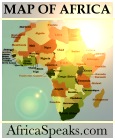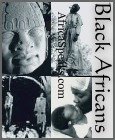Putting Afro In Cuba Tours
Posted: Tuesday, December 24, 2002by Willie Thompson
On the "Afro-Cuban Connections" tour, nine African North Americans who traveled to Havana, Regla and Santiago de Cuba with the Carlton Goodlett Institute and Marcus Books Oct. 25 to Nov. 1, reluctantly understood and accepted the reality that the alienation and compromised patriotism felt by many African North Americans are not shared by African Cubans, who, except for a few scary traitors who would welcome a U.S. invasion, are super patriots. Understanding, accepting and acting on these realities is a challenge, though not insurmountable, for connecting with the people of African descent in Cuba and elsewhere in the Americas, ending the United States travel ban and blockade against Cuba, ending racism and improving the social and economic conditions of people of African descent in the United States, Cuba and all the Americas.
How is it that these two westernized people, African North Americans and Cubans, differ so strongly on the national component of their identity? C.L.R. James, the Trinidadian intellectual and author of the best book on the Haitian revolution, "The Black Jacobins," said in an interview in the Black World that "it has to be realized that we in the United States, and in the Caribbean, are people who are to a substantial degree westernized."
Cubans agree strongly with their intellectual founding father, Jose Marti, who said, "More than Black, more than White, we are Cubans." The Cubans further believe that they have destroyed the pre-Castro governments that were dominated by the United States and are now free to reclaim what they want from Africa in the "new" Cuba.
On the other hand, Africans in the United States are deeply alienated and conflicted in a racist, materialistic, supra-rational, hegemonic white supremacist nation that was built, during its agricultural era, by our enslaved African ancestors and their descendants - work for which we have never been paid. This African North American alienation and compromised nationalism and patriotism can be partly understood by a brief review of the racist legacy of some of the icons of the U.S. indelibly instilled in its scientific, religious, symbolic, economic and political institutions.
Thomas Jefferson, the very personification of the United States, wrote: "I advance it … that the blacks, whether originally a distinct race, or made distinct by time and circumstances, are inferior to the whites in the endowment both of body and mind" (quoted by Elaine Brown in "The Condemnation of Little B," page 128, from "The Life and Selected Writings of Thomas Jefferson," edited by Adrienne Koch and William Peden, p. 243).
This sentiment is expressed by another "great American," Abraham Lincoln, who said, "There is a physical difference between the white and black races which I believe will forever forbid the two races living together on terms of social and political equality … and I as much as any other man am in favor of having the superior position assigned to the white race" (Howard Zinn, "A People's History of the United States," page 184).
The fact that Jefferson and Lincoln are not repudiated by North Americans has prompted many Black leaders to lead their Black audiences in the chant, "We are an African people," and to the spelling of Amerika with a K as in the Ku Klux Klan. The latter is the notorious vigilante group organized with state and federal sanctions following emancipation. The KKK numbered 2 million strong in the 1920s and carried out 100 years of lynchings of African North Americans.
African North Americans still confront a formidable European secular, scientific, economic and military dominance in the United States. Much of this dominance was made possible by an agricultural economy built with the unpaid labor of enslaved Africans and descendants of Africans for which we are now demanding reparations. Although we have always resisted this dominance, destruction and subjugation and participated at high levels in all U.S. institutions and served with valor and honor in its just and unjust wars, many African North Americans feel a profound alienation and compromised or debilitated patriotism. Our Cuban contacts boast of a strong identification with mestizo Cuba and feel assured that the African presence in the mestizo Cuban economic, political, religious, educational and scientific life is strong and will naturally grow stronger.
The members of the Afro-Cuban Connections tour often went our separate ways. Four of us spent our second evening and early morning with James Early, director of cultural heritage at the Smithsonian Institution. Early is highly regarded by the Cubans, but we learned from him that both the Cuban Communist Party and the Union of Writers and Artists of Cuba have failed to heed his appeal to them to deal with the volatile issue of race in Cuba. These groups maintain this stupidity even though President Fidel Castro, son of a mulatta servant, openly admitted in 1985 that racial discrimination still exists in his country and that measures need to be taken against it, according to Eugene Godfried in an article on AfroCubaWeb.
In September 2000, Dr. Castro told the Pedagogia 99 Congress in Havana: "It was some time before we discovered that marginality and social discrimination with it are not something that one gets rid of with a law or even with 10 laws, and we have not managed to eliminate them completely in 40 years."
Most of us met the anthropological research team called Project Orunmila in Regla, Cuba, 10 minutes from Havana. I spent the last day alone with this family-run document recovery, transcription and dissemination project that also operates a farm to provide financial support. I had earlier misunderstood the extremely important work of this group and unjustly accused them of insufficient rage at the historical and contemporary color prejudice still extant in Cuba, as though rage and alienation are the only appropriate responses. I clearly undervalued the depth and significance of their work and the African originated materials they are diffusing in Cuba and beyond.
I quote from an annotation on one of their volumes, called "Awo Orunla Dice Ifa":
"This book is the widest and most complete compilation of the complex panorama of legends that once belonged to the Yoruba people of Nigeria and that are still standing in Cuba and in different areas of the Caribbean (Puerto Rico, Dominican Republic, etc.), the USA and several Latin American countries (Venezuela, Mexico and Brazil). The work is organized according to the Oduns of Ifa. All writings are therefore placed in corresponding order. This leads the user to a better comprehension and understanding of the panoramic vision of the mythological world of Ifa. It relates an organized knowledge about the men's event as individuals, the way of thinking of those men, and about the society in which they live."
Sponsorship is needed for Project Orunmila to continue publication. The project may be reached by email at proyecto@orunmila.net or adeyeri@orunmila.net; by phone at 97-0677 (the home of Elsa, a neighbor) or by writing to Camilo Cienfuegos #109 e/c Oscar Lunar Y Nico Lopez, Regla 12 C.P. 11200, Ciuidad de la Habana Cuba.
The members of our group who visited the Agricultural Cooperative in Santiago rated it the best for its achievements, its holistic focus, the presence of Black Cubans in leadership positions and its warmth and receptivity. Some of our members said that they could have spent the entire day there. However, then we would not have been able to visit the Cuban Women's Federation or spend time with Eugene Godfried of the Radio Habana Caribbean Desk, who traveled by taxi from Guantanamo, Cuba, with the minister of culture for a frank and open discussion of African Cuban and African North American connections. We would also have missed Dr. Manuel Fernandez Carcasses, director of the Ateneo Cultural Center, who is an important link to the Oakland-Santiago de Cuba Sister City Committee.
The Casa de Africa at Humboldt's House in Havana was a superlative religious lecture-tour, music and dance experience by Los Ibeyis, directed by Daniel Rodriguez Morales (phone 99-2022). This foot-stomping, hand-clapping audience participation experience was superior to our visit to the Cuban International Ballet, which was enjoyable and included an orchestra directed by an African Cuban with several African Cuban musicians.
Afro-Cuban Connections may be the beginning of a more intense African North American tour that deepens fun, analysis, learning and action around the different realities of race, nationalism and patriotism and the alienation and resistance to violations by the United States of the constitutional rights of its own citizens and the sovereign rights of other countries who disagree with it.
We are deeply indebted to Dr. Raye Richardson, owner of Marcus Books in San Francisco and Oakland, for making this trip possible, with the cooperation of the Carlton Goodlett Institute and Global Exchange and a great deal of individual ingenuity and flexibility.Printer friendly version
Send page by E-Mail

Previous Page | Zimbabwe Watch | Historical Views | Home
NOTICE: All articles are the copyright property of the writers. In accordance with Title 17 U.S.C., section 107, some material on this site is provided without permission from the copyright owner, only for purposes of criticism, comment, scholarship and research under the "fair use" provisions of federal copyright laws. Visit: http://www.law.cornell.edu/uscode/17/107.shtml for more details. If you wish to use copyrighted material from this site for purposes of your own that go beyond 'fair use', you must obtain permission from the copyright owner.










